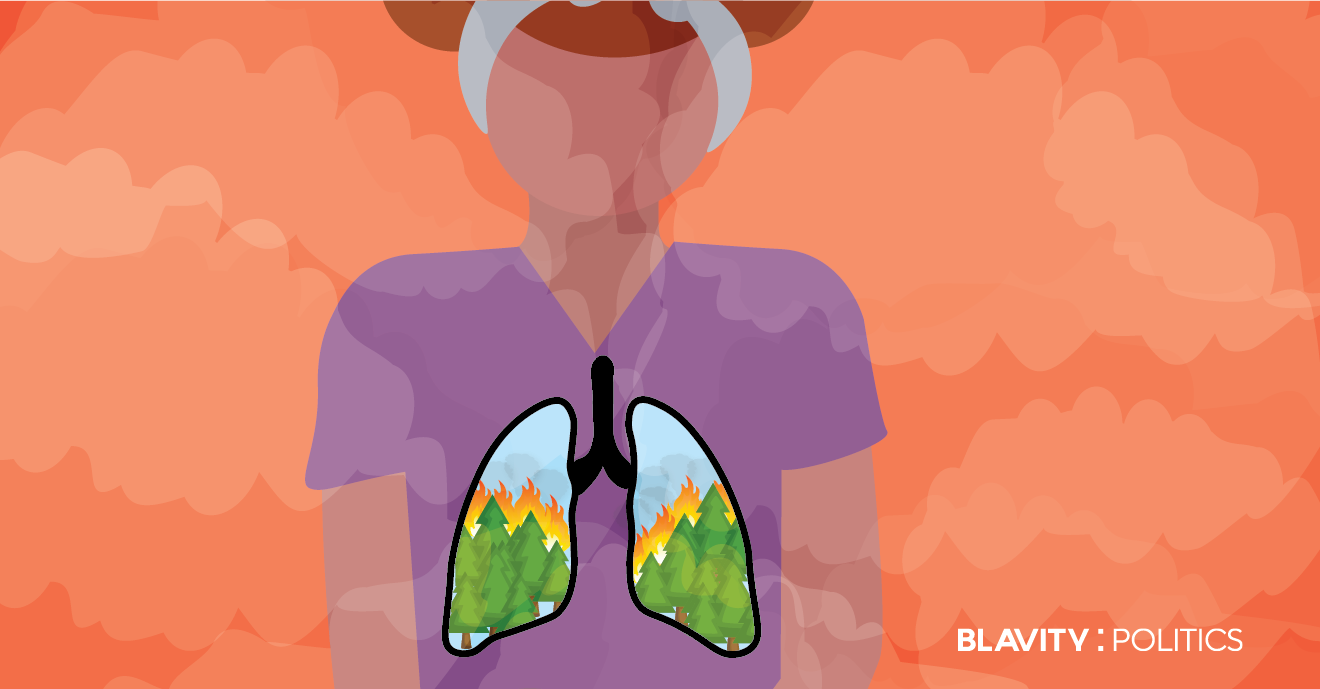This is the weekly column written by Blavity:Politics Senior Editor Kandist Mallett.
The earth’s lungs, the place that provides 20% of the world's oxygen is on fire and has been for the last three weeks. The Amazon Rainforest is one of the most important resources for fighting climate change. The rainforest is home to indigenous populations, wildlife and medicinal vegetation. It helps to keep the local and global temperatures down, and is the planet's largest rainforest. The fact that it is burning at such a large scale is only telling of humans' lack of response to take climate change seriously.
The current president of Brazil, Jair Bolsonaro, has been deemed by Brazilian environmentalists as “Captain Chainsaw” because of his deforestation policy. The fires are believed to have started from farmers and loggers who have long used fire as a way to clear land for business use. According to CNN, in a statement from the National Institute for Space Research (known by the abbreviation INPE), “there have been 72,843 fires in Brazil this year, with more than half in the Amazon region…That's more than an 80% increase compared with the same period last year.”
Bolsonaro has deflected and blamed the fires on non-governmental organizations (NGOs), saying in a video posted on his Facebook account, “maybe—I am not affirming it—these [NGO people] are carrying out some criminal actions to draw attention against me, against the government of Brazil. This is the war we are facing.”
This “war” of environmentalists against pro-deforestation has been long and deadly in Brazil. In 2005, 39 environmentalists were killed in Brazil. And in 2018, 57 environmentalists were killed due to clashes with poachers, miners, loggers and ranchers, according to Global Witness and reported by the LA Times.
Being an environmentalist is one of the most dangerous forms of activism. While “tree hugger” might imply something else, environmentalists around the world are under a constant threat from big business and government powers.
In the U.S., environmentalists who called themselves “water protectors” were surveilled, teargassed and brutalized by police during the Standing Rock protest in the anti-Dakota pipeline protest in 2016. One of the water protectors, Red Fawn Fallis, was targeted by the FBI and had an informant assigned to her. Fallis was later arrested and sentenced to five years in prison for attempting to shoot at a police officer. The gun that was reportedly used was from an FBI informant who made Fallis believe they were in a mutually romantic relationship.
Fallis is just one example of how environmentalists are targeted by governments and treated as a threat. The fire in the Amazon is like a cruel joke. Here we are in a global crisis because of climate change, and our governments are still failing to take action. Is increasing deforestation when scientists repeatedly warn that we are pretty much past the tipping point a good idea, when Greenland is melting at a speed that is unprecedented? Should we be building more pipelines for oil? And should governments treat environmentalists like a threat when the real eco-terrorist is these companies that pollute and destroy our environment with no regard to how it will impact the billions of people living on this planet?
It would be poetic to say the earth’s lungs being on fire is a metaphor for a body that's sick, for a society that refuses to address the harm it’s causing to itself. But sadly, it is not a metaphor. Humans as a species will not survive without rainforests. We require a planet full of trees for our survival. And surviving as a species is something we won't be able to do for much longer if we don’t begin to make drastic changes in our approach to the environment and those who are fighting to protect.
